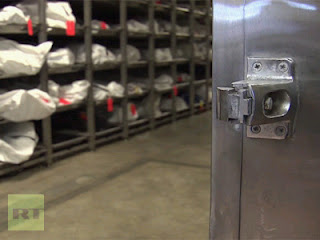The Lamp Beside the Golden Door
Last fall I was at a local immigrant right’s benefit promoting Green Card Stories from a table that I had set up, with a portion of profits going to the Immigrant Law Center of Minnesota. The movie Tony and Janina’s American Wedding, which is a powerful documentary about the long-term separation of a Polish family due to immigration complexities, was being shown and the event was open to the public.
When the movie ended a number of people wandered over and perhaps because of the sign on my table saying Green Card Stories, began telling me theirs. One woman who was with her teenaged daughter said, “I should be in your book, but I have had temporary status for 21 years.” She explained that she is from El Salvador and fled the war at the end of the 1980′s. She has lived here ever since, annually renewing her work permit but unable to apply for her green card.
Temporary protected status (TPS) is granted to nationals of certain countries during times of emergency and political strife and is renewed annually, but only if the U.S. administration agrees that there are still dangers inherent in returning. Salvadorans were granted something very similar to TPS called Deferred Enforced Departure (DED) back in 1992, followed by other legal protections but in 2001 were granted TPS as a result of earthquakes in the region.
Twenty one years is an extraordinarily long time to be in “temporary” status. It is unfathomable for most TPS holders, who have settled into permanent lives in the U.S., that at any point the U.S. government will decide that “the coast is clear” and it is time to go “home”. Living with that constant fear for decades is incredibly challenging for families. These are, after all, people lawfully in the U.S. with work permission, who still worry daily about being told that they will have to leave.
I commiserated a little with the woman and agreed that being on TPS for so long was very difficult. Her U.S. citizen daughter was browsing through the information on my book and looked up to tell me that she was doing a report on immigration for her class in school and was looking for materials to use. Her mother had already bought a CD of the movie and had signed up to buy a book, which I thought was generous. Then the mother said, “My daughter really wants to tell her friends about what is happening with immigration. Her father was deported a few years ago because he didn’t have TPS with me.”
I said, “Wow, that must be really hard.” She looked me in the eye and said without emotion, “He tried to come back four months ago but he was killed in the desert.” I was stunned at the raw truth of this. Now I understood why this mother had taken her daughter to the movie and was buying materials for her to try to explain what had happened to her classmates. The girl said simply, “My dad wasn’t a criminal. No one understands.”
Prior to Operation Gatekeeper border crossing deaths were few and far between, estimated at only one or two a month. Fifteen years after Operation Gatekeeper the ACLU released a 76 page report finding that there had been more than 5000 deaths in that time period, with the risk of dying 17 times greater in 2009 than in 1998. Because migrants have been pushed to cross the border in increasingly remote and dangerous areas, deaths have increased substantially despite fewer making the attempt and a steady drop in apprehensions by the Border Patrol. In fact, today there is a net zero increase in the influx of undocumented workers from Mexico, but this is seen to be more a result of our economic downturn than the result of increased border enforcement.
Still, the deaths continue to increase. It is now estimated that 1000 more people have died while attempting to cross the border in the two and a half years since the ACLU report, with Arizona being the deadliest state to cross into. Recently the Pima County medical examiner referred to it as a “mass disaster” as the unidentified bodies in its cooler continue to pile up.
Some deaths are from other than natural causes, such as vans over-filled with immigrants crashing as a result of deadly high speed chases or, according to the ACLU report, nails put onto the road to stop smugglers. Some are killed directly by border patrol agents, as was the case with a fifteen year old shot and killed on the Texas border two years ago or the tasing and beating of the 25-year U.S. resident and father of five U.S. citizen children (shown in this recently released, appalling video). Others are murdered by rifle-toting camouflaged border vigilantes, as happened to two innocent migrants in Arizona last month.
Many more are dying on the Mexico side before ever making it to the U.S., as brutal drug cartels have expanded into the human smuggling business. Or gangs have made their money by demanding ransom from migrants’ families and killing them when those ransoms aren’t paid (as happened two summers ago when 72 migrants were massacred at once for refusing to pay ransoms to one of Mexico’s most powerful drug cartels.)
So, one wonders, why do people even consider attempting such a dangerous crossing into the U.S. with all of these obstacles? Are they oblivious to the dangers? Not at all. The ACLU report found that most border crossers understand that there are serious risks involved but they are still willing to take them. Why? Just as with the father of the girl I mention at the beginning of this post, they are driven by the desire for a better life and most of all to be reunited with their loved ones who already live here. As a business man from Iowa who attended an event I spoke at on immigrant investment said to me in passing, “I tell you what, if my family was living in poverty and I knew that the only way I could provide a better life for them was by illegally crossing the border into Canada, I bet you that I would.”
So that is why – love of family. I recently heard Illinois Congressman Luis Gutierrez give an impassioned speech about immigration in which he described the dangerous lengths to which people will go to be reunited with their families in the U.S. He said something like this:
| I know that our laws look harshly on someone who is caught trying to re-enter the U.S. after being deported, but I don’t want to know the person who would not try to come back to be re-united with family. To me, the father or mother who would not make every effort to come back is not a person I would admire. The good person, the one whom I would want to know, is the one who would risk everything to be with family again. |
NOTE: I had a couple of weeks’ hiatus from writing my blog due to the fact that I was in China and blogspot is banned there. But I’m back at it again.



 RSS Feed
RSS Feed
